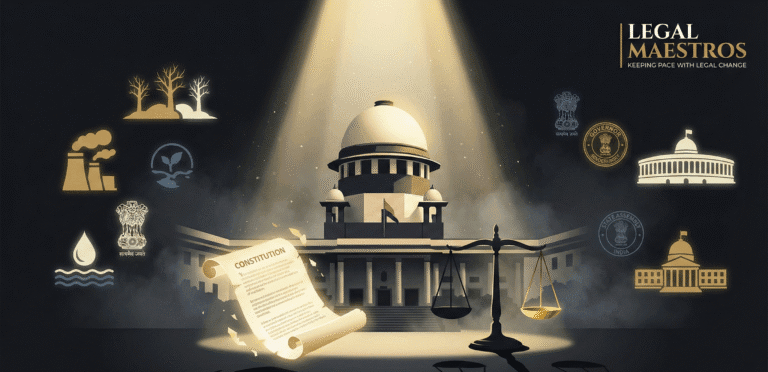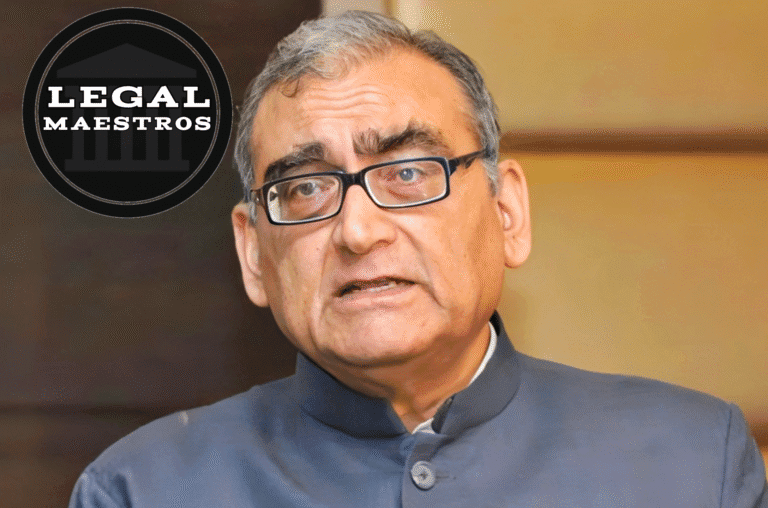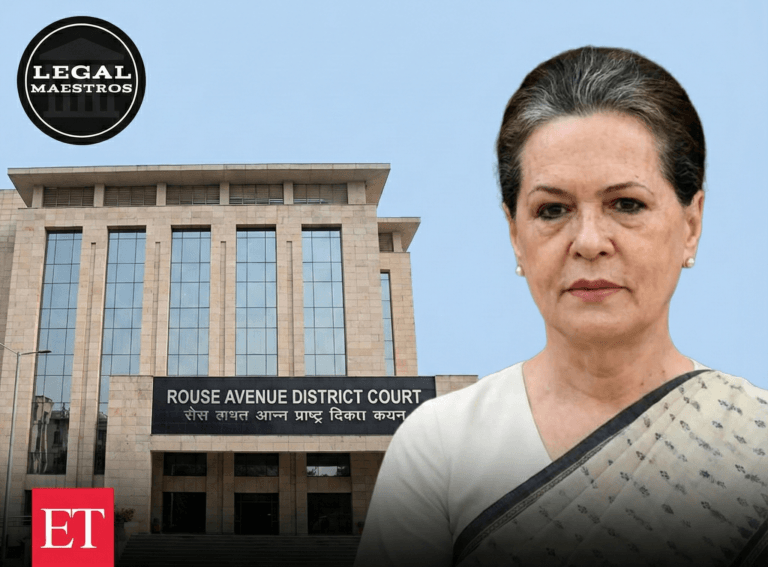
The Andhra Pradesh Criminal Investigation Department (CID) authorities detained the appellant’s son on April 21, 2025, under the high-profile Andhra Pradesh liquor scam. He has been accused under Sections 420, 409 read with Section 120-B of the Indian Penal Code, 1860 for criminal conspiracy, cheating, and criminal breach of trust.
After his arrest, the appellant argued that he was arrested illegally and his son’s rights as per the constitution were violated. He contended that the authorities did not properly inform his son of the exact reasons he was under arrest and that the information that was divulged was vague and inadequate.
The arrestee was produced in front of a magistrate and was remanded to judicial custody. The appellant filed a writ petition under Article 226 of the Constitution, before the Andhra Pradesh High Court, for a writ of habeas corpus, on the grounds that the detention was illegal confinement.
For any queries or to publish an article or post or advertisement on our platform, do call at +91 6377460764 or email us at contact@legalmaestros.com.
The High Court dismissed the petition, ruling that the arrest and detention were not illegal. The appellant then approached the Supreme Court, arguing that the arresting officers failed to comply with the constitutional protections under Articles 21 and 22 and the provisions of the Bharatiya Nagarik Suraksha Sanhita, 2023 (BNSS).
Rationale Behind the Orders
The Supreme Court carefully examined whether the arresting police officers had communicated the grounds of arrest effectively in accordance with the Constitution and the BNSS. The Court could resort to the previous precedent in Vihaan Kumar v. State of Haryana, which formulated the test of effective communication.
The Court reiterated that the duty to inform the arrestee of the ground for the arrest is not a procedural but a constitutional duty in nature. The notice ought not to be ritualistic or formalistic. It must permit the arrestee to understand the ground for deprivation of liberty and provide an effective legal response.
The insufficiency in communication of the reasons invalidates the arrest and resultant detention.
Objections in Law Raised by the Petitioner
The appellant argued that the CID failed to give clear and specific information about the charges. The arresting officers, to his understanding, merely quoted the penal provisions but never specified the exact acts attributed to his son.
He contended that this inability to be specific was against Article 22(1) of the Constitution, which stipulates that reasons for arrest should be communicated as soon as possible. He also contended that his son could not pursue any legal proceedings within a reasonable time frame because the authorities failed to give the material details.
Nevertheless, the Supreme Court held that the officers had informed both the arrestee and his relatives of the reasons for the arrest. The Court ruled that the information provided to them was not cursory and met the test established in constitutional and statutory law.
Judgment of the Supreme Court
The Supreme Court ruled that the arrest was legitimate and rejected the contention that it did not conform to constitutional safeguards. The Court had previously ruled that the conditions laid out in the Vihaan Kumar case had been met. It noted that the officers had informed the accused and his family of the charges in a clear manner and for advice of counsel.
The Court dismissed the appeal and confirmed the High Court ruling. It also made certain clarifications:
- Where warrant arrests are carried out, reading out the warrant to the arrestee is sufficient communication.
- Where unwarranted arrests are made, the officer must state the acts done, and not just refer to the legal provision.
- The grounds have to be conveyed to the arrestee as well as the immediate relatives, so that they can approach in time under the law.
- The Court also clarified that the arrestee, who is now in judicial custody, could move a bail application on a routine basis, and any pending bail plea has to be disposed of urgently.
Legal Implications and Analysis
This ruling holds the constitutional doctrine to be true that the freedom to learn the grounds of the arrest is integral to personal liberty under Article 21, and is particularly guaranteed by Article 22(1).
The Court also clarified the nature and degree of communication required at the point of an arrest. The reasons must be communicated in a form similar to that of a charge sheet—neither general nor vague but specific enough to allow the individual to respond and seek legal recourse.
The judgment draws a line between warrant arrest and warrantless arrest. In the former, a copy of the warrant is sufficient. In the latter, the arresting officer has to expressly mention the factual details of the charges.
The Court also observed that when an arrestee claims that the reasons had not been communicated, the burden lies on the police to establish that they had fulfilled their responsibility in terms of Article 22(1).
This judgment upholds the procedural safeguards of arrests and reminds everyone that enforcement of constitutional rights cannot be routine.
Conclusion
The Andhra Pradesh High Court had ruled that the arrest was legal and had dismissed the habeas corpus petition. The Supreme Court confirmed that ruling, holding that the CBI and CID officers had followed due process and that the arrestee’s constitutional rights had not been infringed.
The person is in judicial custody and may approach for bail on a regular basis. The Court judgment is now a well-established precedent for examining to what extent law enforcement agencies must articulate the grounds for arrest to uphold the rights of the accused.
Sources
- Vihaan Kumar Vs. State of Haryana 2025 SCC OnLine SC 269.
- LiveLaw, ‘Supreme Court Upholds Arrest in Andhra Liquor Scam Case; Cites Constitutional Compliance’ (13 July 2025)
- SCC Online, ‘Grounds of Arrest Must Be Meaningfully Communicated: SC Reiterates in Liquor Scam Appeal’ (13 July 2025)







